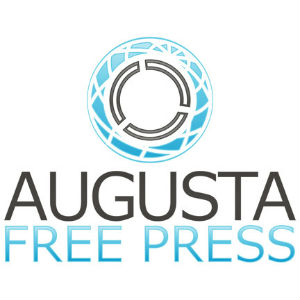Cultivate Charlottesville’s Food Justice Network launches 24/7 Foods Safety Textual content Line : Augusta Cost-free Push
 The Metropolis of Charlottesville, in collaboration with Cultivate Charlottesville-Food stuff Justice Community, has released a 24/7 Food stuff Safety Text Line in English and Spanish to give immediate food items resource details to citizens of the city and surrounding counties.
The Metropolis of Charlottesville, in collaboration with Cultivate Charlottesville-Food stuff Justice Community, has released a 24/7 Food stuff Safety Text Line in English and Spanish to give immediate food items resource details to citizens of the city and surrounding counties.
In March 2020, the Food Justice Community mobilized to supply communication instruments and food accessibility assets to address operational and programmatic adjustments thanks to the pandemic shutdown and shelter in position orders.
The Foodstuff Stability Textual content Line was designed in response to neighborhood feed-back and confusion surrounding adjustments to foods accessibility assist in buy to overcome the mounting food stuff insecurity brought about by COVID-19 and exacerbated inequities.
“We selected the text information program for the reason that neighborhood users required far more individualized information and facts, and we required to deliver a extra immediate avenue of conversation,” mentioned Daisy Mosqueda, the UVA Fairness and Ecosystem Fund Fellow foremost the program’s advancement.
The Food stuff Safety Textual content Line improves accessibility by ensuring citizens are far better equipped to navigate food stuff methods when accounting for the more worries brought on by the pandemic. The application gives details on 35+ out there foodstuff pantries and other food means in Charlottesville and in surrounding counties, which include Albemarle, Augusta, Greene, Buckingham, Louisa, Fluvanna, and Nelson.
Inhabitants can textual content “FOOD” or “COMIDA” to (844) 947-6518 to obtain details about food stuff sources out there in close proximity to their present-day zip code. Information is out there in English and Spanish.
In New York Town, Town Harvest and United Way designed a text message method to communicate the transforming several hours of functions and food items pantry information for people enduring meals insecurity. The program strengthened the organizations’ means to react to the COVID crisis such as lessened pantry hold out moments and enhanced accessibility to foodstuff methods.
The Food stuff Protection Text Line builds on the infrastructure of the No Kid Hungry text line (textual content Meals to 877877) for college meal distributions and the USDA Starvation Textual content Hotline (text Food or foods to 97779) for regional USDA food items banks, together with the lots of assets particular to our community local community these kinds of as food items banking companies, church food items pantries and nonprofit programs.
For extra details and to unfold the phrase, check out: https://cultivatecharlottesville.org/covid-19/.
To supply responses on the text line, you should fill out this study: tinyurl.com/foodtextline
This plan was produced feasible by coordinated help from the City’s Foods Equity Initiative and Food Justice Community Businesses and Companions, together with community customers, the College of Virginia Equity & Setting Fund and the City of Charlottesville Division of Human Expert services.
Cultivate Charlottesville’s Foods Justice Community would like to convey our gratitude for neighborhood associates and advocates from the next companies that committed their time and electricity to inform the plan design and style and implementation: Community Housing Association of Inhabitants (PHAR), Charlottesville Redevelopment and Housing Authority (CRHA), Gen to Gen, Lawful Assist Justice Center, Westhaven Nursing Clinic, Boys & Girls Clubs of Central VA, Sin Barreras, Worldwide Rescue Committee (IRC), Charlottesville Metropolis Colleges, Piedmont Housing Alliance, Department Social Products and services, Section of Human Expert services, Albemarle County Office Equity & Inclusion, Blue Ridge Wellness District, and the Central Virginia Authorized Assist Culture.









